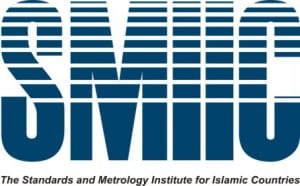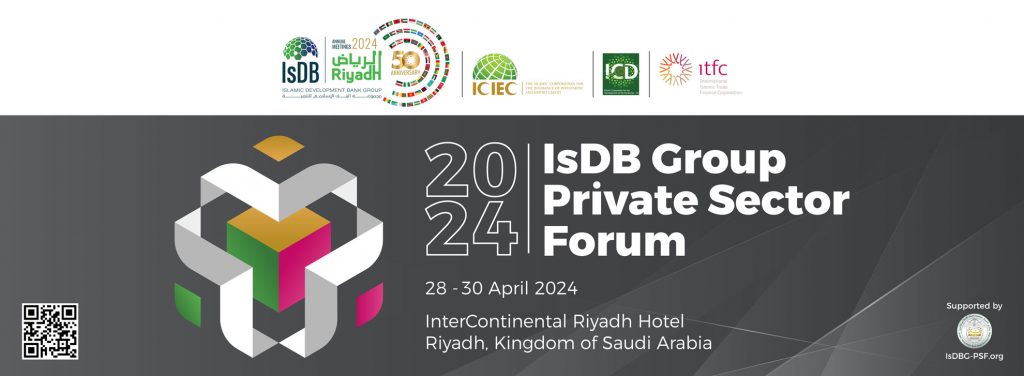 The SMIIC Forum 2012 was held on the 6-9 November, 2012 in Belek, Turkey, gathering the heads of international organizations and bodies for standardization and metrology countries participating in OIC (Organization of Islamic Cooperation), experts in Halal and religious figures. The Director General of the Halal Certification Center in Russia, Dinar Sadykov, received an official invitation from SMIIC, as his organization is engaged with Halal product certification and services in Russia and these products are for export to Muslim and Arab countries, as well as because he is an expert of this area.
The SMIIC Forum 2012 was held on the 6-9 November, 2012 in Belek, Turkey, gathering the heads of international organizations and bodies for standardization and metrology countries participating in OIC (Organization of Islamic Cooperation), experts in Halal and religious figures. The Director General of the Halal Certification Center in Russia, Dinar Sadykov, received an official invitation from SMIIC, as his organization is engaged with Halal product certification and services in Russia and these products are for export to Muslim and Arab countries, as well as because he is an expert of this area.
The Forum programme was divided into 2 parts: the operation of Technical Committees and bodies of accreditation, and the 5th Board of Directors Meeting SMIIC (Institute of Standards and metrology for Muslim Countries).
The signs that the Forum would be abundant with various discussions and debates was clear at the opening, when at the end of the official opening ceremony interesting and complicated questions were asked.
The work of Technical Committee 1 (Halal products) and Technical Committee 2 (Halal cosmetics) were the liveliest and most active sessions. The results of two meetings were:
– Election of the Chairman of for the Technical Committee (TC), after some discussion, was appointed to the Emirate Standards Authority for Standardization and Metrology ESMA in the UAE. Farah Al Zaruni (UAE) was elected as the Chairman of TC 2 for Halal Cosmetics.
-The TC Chairman elected for Director of the Chemical Industry certification was Turkish Standards Institute Bilge Isiklar.
As this was the first official work of the Technical Committee chaired by the Chairman, the development of TC concerns were very important, including the definition of its subcommittees and working groups which is why discussions took more next two days.
The concerns of electro-stunning and mechanical slaughter were discussed, the correct labeling of products, and also the definition of time interval from slaughter to scalding, refusal of electro-stunning and mechanical slaughter as Halal.
The result of this was the establishment of the following working groups:
– Nutrition, consisting a separate groups for additives and productive components, slaughter, GMOs (Genetically Modified Organisms)
– Animal feed
– Inspection and Certification
– Pharmaceuticals and Dietary Supplements
It is also worth saying that the closed meeting for SMIIC Directors SMIIC was held on the 7th November, in which the Centre of Halal Certification took part as the observer from Russia. Agreements were signed on the inclusion to membership for SMIIC (Institute for Standards and Metrology for Islamic Countries) of Afghanistan and the body for Standardization of the Persian Gulf (GSO) which consists of seven Arab countries. Now the members of the SMIIC (Institute for Standards and Metrology for Islamic Countries) include 20 countries. In the near future three more countries are to be added.
Other distinguished guests of the Forum were Director of Fatwa Department of the International Islamic Fiqh Academy OIC Abdulkahir Dr. Kumar, director of the Department of Economic Affairs OIC Golamhosseyn Darzi, Director of Food and medicines in Saudi Arabia (SFDA), His Excellency Dr. Mohammed Al Kanhal, Second Secretary of Ministry of Science and Technology of Pakistan Nazhib Haver Awan and many other important persons holding high positions in their countries.
Halal Standard
Basically speakers spoke about their organization and its methods of operation. But as soon as the topic of the Halal Standard was raised, speakers held the attention of the whole audience with their interesting approach of explaining the terrible picture of what is happening on the local level in their country and on the world stage. Everyone remembered the presentation of the Director of the Department of International Relations, Professor Saim Kayadibi , from the International Islamic University of Malaysia, who convincingly demonstrated the need for a common standards organization for Halal, that would be the equivalent of the International Organization for Standards (ISO). Another shocking presentation was of Prof. Dr. Mustafa Tayar from the University of Uludag(Turkey), who described the whole picture of hygiene and sanitation, and how a Halal standard could help to solves this problem.
One of the most important outcomes of the Forum was the participation of high-ranking officials of Turkey, which emphasised that the Turks approach is very serious to everything that is connected with the Halal Industry. Each representative of Turkey personally felt their own obligation to be the part of this trend. And the important thing is that each of them strives to bring something useful to the development of Halal Industry, depending on his holding position. They all believe, like many others who participated in the SMIIC Forum -2012 that the future is for Halal and therefore, it is necessary to prepare today and seriously.



